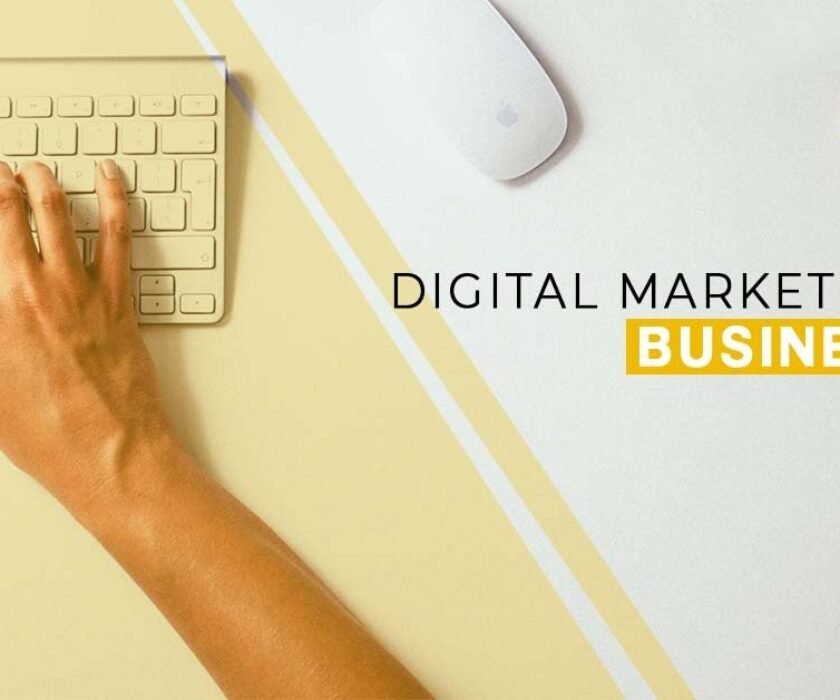Whenever you hear Ecommerce vs Digital marketing, you probably think it’s the same thing.
Confused? You wouldn’t be anymore because we are here to clear your confusion regarding digital marketing vs e-commerce.
Many individuals confuse the phrase “digital marketing” with “eCommerce.” But there is a difference between the two.
However, it doesn’t mean that they both exist in different worlds. E-commerce and digital marketing have much in common, yet they cannot be substituted.
So, let’s find out the differences between digital marketing and E-commerce.
What is Ecommerce?
E-commerce is a part of the economy with a large and growing online market that has changed how consumers and businesses deal.
Customers no longer need to visit a mall or actual store to buy the desired goods. Instead, individuals may buy things from the convenience of their homes online.
It is impossible to exaggerate how essential convenience is in advancing the field of e-commerce.
In recent years, e-commerce has experienced tremendous growth. As businesses learn more about their consumers, it is predicted to increase further.
E-commerce sales are predicted to make up 20.2% of all retail sales globally in 2023. It is expected to make up for an incredible 24% of retail sales globally by 2026 due to its explosive growth.
Business owners now have multiple opportunities due to the growth of e-commerce. For instance, many individuals may purchase goods online without leaving their houses.
Furthermore, there will be an increasing number of methods for people to connect with e-commerce because technology is all around us (phones, smart home gadgets, etc.).

E-commerce Marketing Strategy
An e-commerce strategy is similar to a digital marketing campaign, in which you advertise your product to increase sales. It extends beyond marketing to cover every aspect of a product and is essential for attracting new and repeat consumers and boosting demand.
Here are some strategies for E-commerce marketing given below:
- Invest in SEO
E-commerce SEO is improving a website’s ranking on search engines. E-commerce SEO aims to get your product pages to rank in the top 10 results on search engines like Google, Yahoo, and Bing.
Your website’s material should be accurate and trustworthy and inform the audience about their searches.
For instance, if you own an online business that sells beauty products, it’s a good idea to give detailed product information and even host areas of your website with a great deal of material that elaborates on fashion, makeup, or similar topics.
When customers search for a specific term, including keywords in your content naturally can also mark your website as a matched result in search engines.
- Implement an Influencer Marketing Strategy
Influencer marketing is a practical approach to help your online store grow. It enables you to collaborate with artists who generate revenue for you, expand your brand exposure, and reach new audiences.
On influencer marketing strategies, 67% of marketers expect to spend more in 2023.
Influencers serve as brand advocates for your business and are similar to online celebrities.
You compensate them for promoting your goods by giving them free items or discounts.
Finding ideal clients is made incredibly easy with influencer marketing. Influencer marketing shortens the sales cycle for a product.
Additionally, shoppers may now make straight purchases via Instagram and TikTok.
- Sending Promotional Messages
SMS marketing is the practice of communicating promotional SMS messages to both current and potential clients. The purpose of messages is to notify customers about new products, updates, notifications, and special offers.
If you have an online store, you may use SMS marketing to recover an abandoned cart, cross-sell and upsell, make promotional sales, exclusive deals, and reviews, and help customers.
Right now, the most successful industry using SMS marketing is e-commerce. It is an effective technique for companies to get consumers’ attention.
- Use Social Media Platforms
Social media marketing in E-commerce is an effective instrument. It lets you interact personally and directly with your market, consumers, and industry.
You may use social media to increase website traffic, encourage engagement and conversation, and build a more extensive consumer base.
To make the appropriate adjustments to your E-commerce marketing strategies, measure the results of your initiatives. It would help if you examined statistics on impressions, reach, website clicks, and profile visits to understand user behaviour, as social media sites provide built-in analytics for company profiles.
- Get More Email Subscribers
Email marketing is one of the best tools at your command for increasing sales and engaging consumers.
Email can provide a more personal engagement because Instagram and TikTok updates are too numerous for us to keep up with. Messages delivered to personal inboxes are more guarded than those posted to social networks.
In addition, email offers you a chance to discuss things that don’t fit in a social network post.
- Use Live Chat to Interact With Online Store Visitors
In addition to email, other highly effective ways exist to interact with website visitors and clients. For instance, you may interact with website visitors via live chat.
Many live chat platforms allow you to target visitors on particular pages, have been on your site for a specific period, or have even come by email newsletter.
Furthermore, live chat allows you to speak with your consumers directly, allowing you to respond to questions and handle issues as they arise just before a sale.
What is Digital Marketing?
Digital marketing refers to a marketing strategy that uses web-based digital technology to advertise products and services online.
It may be done by attracting new customers through social media, email marketing, Google search, Google Ads, blogs, or websites.
SEO, PPC ads, email, and social media marketing are examples of digital marketing.

Digital Marketing Strategy
A marketing strategy is a plan for concentrating on and achieving specific marketing-related objectives.
Following are some strategies for digital marketing:
- Set Your Goals
Clearly state your marketing goals. Are you trying to raise brand exposure, lead generation, website traffic, or conversions? Setting objectives will enable you to concentrate your efforts and monitor your progress.
- Know Your Market
Learn about the demographics, interests, tastes, and challenges your target audience faces. With this information, you can create customized marketing messages and pick the best platforms for connecting with your target audience.
- Produce Compelling Material
Provide compelling material that appeals to your target audience and is of the highest quality and value. It includes articles, podcasts, infographics, videos, blog posts, and more.
Make sure you pay attention to and respond to your audience’s demands, responding to their inquiries and solving their issues.
- Implement search engine optimization (SEO)
Make your website and content more visible organically by optimizing it for search engines.
To boost your search engine ranks, conduct keyword research, optimize meta tags, headers, and URLs, increase website loading speed, and create high-quality backlinks.
- Use Pay-Per-Click (PPC) Advertising
To increase targeted traffic to your blog, consider using PPC campaigns on Google Ads or social media sites.
Create engaging ad copy, conduct proper keyword research, choose relevant keywords, and monitor and optimize your ads for the best results.
- Utilise Social Media Marketing
Establish a presence on the social media sites where your target audience is most likely to be found.
Share your blog posts, interact with your readers, join relevant conversations, and execute targeted advertising campaigns.
- Email marketing
Create an email list by providing your blog’s readers with worthwhile content or offers.
Utilise email marketing to foster relationships, share blog updates, advertise exclusive deals, and increase blog visitors. For greater engagement, personalize your emails and divide your audience into groups.
Conclusion
Digital marketing vs E-Commerce is two different ideas that are frequently discussed together.
Digital marketing is a strategy to generate the required traffic to these businesses to enhance sales. In comparison, E-commerce is buying and selling goods and services online.
Though, if you have both implemented, your business could get more successful.
Digital marketing for e-commerce businesses may help your business succeed online if you work with the best digital marketing agency.
Want to enhance consumer awareness of your brand, bring in new clients, and boost your business’s revenue?
ByteTeck Consulting is here to make that possible.
You may begin your digital marketing plan for e-commerce with our team of specialists at ByteTeck Consulting.
Contact us to learn more about how we can improve your web presence, increase lead generation, and grow your business.
Which is better digital marketing or E-commerce?
An E-commerce platform can benefit from the brand awareness, brand loyalty, and traffic digital marketing can generate.
Is digital marketing in e-commerce?
In contrast, digital marketing entails promoting these goods or services through various online channels, including search engines, social media platforms, email marketing, content marketing, and more.
Is digital and e-commerce the same thing?
Digital describes how information is stored, processed, sent, and displayed using electronic technology like computers, cell phones, and the Internet. It includes several facets of technology and communication, such as digital platforms, digital marketing, and digital content.
On the other hand, the term “E-commerce” mainly refers to the exchange of goods and services over the Internet. Online shopping, electronic payments, online auctions, and online banking are all included in e-commerce.
What’s an example of digital marketing?
Businesses use email marketing to develop customer relationships, advertise goods and services, provide news and offers, and encourage sales.
Is Amazon considered e-commerce?
Amazon enables people and companies to sell their products directly to consumers through its platform. It also supports online transactions, order fulfilment, and shipping services.
What are the four types of eCommerce?
B2B E-commerce: It involves the exchange of goods or services between companies. This kind frequently entails large orders, reduced rates, and long-term contracts.
Consumer-to-Consumer (C2C) E-commerce: C2C E-commerce enables trade between private customers. Typically, it occurs through online markets or platforms where people can directly exchange products and services.
Consumer-to-Business (C2B): It includes the gig economy when independent contractors or freelancers offer their services to businesses.
Why does eCommerce need digital marketing?
Is digital marketing a good career?
Professionals in digital marketing are in high demand as companies focus more excellent value on their online presence and client involvement.
Various industries and specializations are available, including social media marketing, search engine optimization (SEO), content marketing, and email marketing.
Which is more in demand in digital marketing?
Through sites like Facebook, Instagram, Twitter, LinkedIn, and others, it entails developing and putting into practice tactics to engage and reach target audiences.
SEO experts work with companies to boost organic (non-paid) search traffic using various strategies, including keyword research, on-page optimization, link building, and technical optimization.
Is digital marketing high paying?
Digital marketing salaries differ depending on experience, skill level, industry, and location. But experts in fields like search engine optimization (SEO), social media marketing, content marketing, and data analysis may frequently get handsome salaries.




